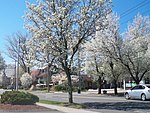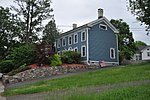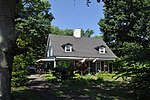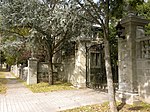Area codes 203 and 475

Area codes 203 and 475 are telephone area codes in the North American Numbering Plan (NANP) for the southwestern part of the U.S. state of Connecticut. The numbering plan area (NPA) is mostly coextensive with the Connecticut portion of the New York metropolitan area, and comprises most of Fairfield County, all of New Haven County, and a small portion of Litchfield County. When the American Telephone and Telegraph Company (AT&T) established the first nationwide numbering plan in 1947, Connecticut received only a single area code, 203, of the 86 original North American area codes. On August 28, 1995 the state was divided into two NPAs, reducing the area of 203 to today's extent and adding area code 860 for the region outside. Area code 860 was eventually overlaid with 959, and NPA 203 received a second area code when 475 was added on December 12, 2009. This overlay was first proposed by the Connecticut Department of Public Utility Control in August 1999. Even though area code 475 overlays only 203, all callers in Connecticut (including those in area code 860) had to dial all calls with ten digits, effective November 14, 2009; this was in preparation for the overlay of area code 959 on area code 860 that was implemented in 2014. The first range of telephone numbers made available in Connecticut's third area code was (475) 882-4xxx, in the Huntington section of Shelton.
Excerpt from the Wikipedia article Area codes 203 and 475 (License: CC BY-SA 3.0, Authors, Images).Area codes 203 and 475
Robinwood Road,
Geographical coordinates (GPS) Address Nearby Places Show on map
Geographical coordinates (GPS)
| Latitude | Longitude |
|---|---|
| N 41.35 ° | E -72.9 ° |
Address
Robinwood Road 81
06517
Connecticut, United States
Open on Google Maps










